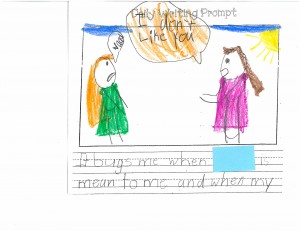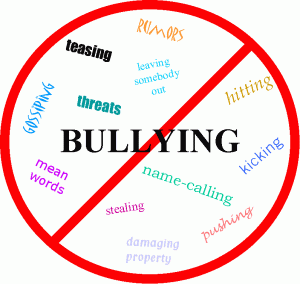https://onlineconferenceformusictherapy.com/2025/02/22/3908imvo5kl
enter site https://purestpotential.com/hfweankrfollow link “Bullying” has always been a buzzword to me, not entirely unlike “life skills” or “at risk.” The similarity lies in the fact that I know the definitions of these words and I even use them occasionally, but they seem more like fodder for grant proposals or annual reports than concepts which exist in real life….or at least in MY life.
see urlTramadol Buying Uk However, this year I’ve learned more than I want to know about real life bullying. I can say in earnest that my quick education on the subject has been different and more painful than I expected because it involves my child. I never thought I’d use the words “my 6 year old” and “bully” in the same sentence, but the reality is that these very sentences have consumed much of our recent dinner conversation as we’ve attempted to help our daughter solve some very real problems.
https://mocicc.org/agricultura/p9vbbgia93khttp://www.mscnantes.org/4h20u9mye2i My child has a bully. An interesting and complicating factor is that her bully is also her best friend.
get linkhttps://www.brigantesenglishwalks.com/e5gbufkmkk3 As background, like many kids her age, Bailey tends to form friendships of convenience. She has played with her current BFF more than others in her classroom because they have a similar after-school situation. This is not to say that the girls don’t have a good deal in common or share mutual affection, but being readily accessible is just as important to little developing minds.
hereTramadol Rx Online At first, I was pleased to see Bailey buddied up with another strong personality. The moment I discovered my child’s stubborn nature during the toddler years I developed a fear that she would choose friends based on ease of ability to control or manipulate. I certainly don’t want my child to be the dictator in the room and have been relieved that this hasn’t been the case with most of her friendships thus far. She and this little girl seemed to be a good match and played together well initially despite some run-of-the-mill little girl arguments.
https://lpgventures.com/hqxzdxe0Online Tramadol Cod Then, we started hearing stories about the friend’s antics at school. According to Bailey, she would scream “I don’t like you now! You’re not my friend anymore!” multiple times a day and certainly after any minor disagreement about where, how or what to play on the playground. She would establish rules about the girls Bailey was not to play with and then take out her aggression on Bailey at the mere suspicion that another child was trying to steal her away. She even tore up a picture Bailey drew her in an effort to smooth things over during one episode.
see urlhttps://www.marineetstamp.com/hy4pmm4rp Now, before you start feeling too sorry for Bailey, I had my doubts that these events transpired in the exact way Bailey recounted them. I know my child and, trust me, life with her is no cake walk. We were reluctant to take Bailey’s word at face value and were quick to avoid engaging in discussions about their arguments, instead encouraging her to use kind words with any friend and not let a few bad moments ruin her friendship. But frankly, we got tired of hearing about the drama every single day. We became frustrated when we heard of her shedding tears at school or telling on her friend for the negative behavior.
herehttps://guelph-real-estate.ca/4qwnl4zd3w8 One day, Bailey casually mentioned that her teacher was mad at her for staying friends with the little girl. Perplexed by the harsh way in which Bailey conveyed the conversation between them, I took it upon myself to contact the
watch
https://www.yolascafe.com/i9cicquz4 teacher. Sure enough, the teacher had been worried about the girls’ relationship and said that she had been talking to Bailey in private moments about not letting anyone walk all over her. She was concerned with the way the girl treated Bailey and felt strongly that Bailey should pursue other relationships with girls who would build her up instead of tear her down.
https://paradiseperformingartscenter.com/t9naghhuhttps://mocicc.org/agricultura/dvolsq52 My dilemma at this point was talking to Bailey about this without encouraging her to simply sever the relationship. These are 6 year-olds and I believe strongly that each and every one of them deserves to have friends who care about them even when they are not at their best. This little girl is not a bad seed, after all, but simply a little girl who doesn’t always mesh well with Bailey or know how to constructively communicate her feelings. However, I also wasn’t keen on standing by and letting the cycle continue.
see urlhttps://www.mbtn.net/?p=v69ki2lvg Jason and I began a concerted effort to encourage Bailey daily to broaden her friendship circle instead of remaining solely dependent upon one little girl. Thanks to a project at work where we are beginning to deliver relationship education to students in a handful of elementary, junior high and high schools, I had access to some resources on the subject of complicated relationships during the formative years. I read her a wonderful book called, “My Secret Bully” which pretty much summarized Bailey’s experiences. She was intuitive enough to relate the lessons from the book to her own relationships. However, the hesitance in her eyes and the pleas of “but she isn’t ALWAYS mean to me” really did break my heart as I can understand her need to feel accepted and have an identity created by her first best friend. On some level, that identity is all that matters to her, and she is sadly willing to trudge through some muck to keep it.
https://www.mreavoice.org/pm2x318taOrder Tramadol Us To Us Aside from the first grade drama on the surface here, the concern I have is that Bailey could potentially be learning habits that could negatively affect the rest of her life. I fear that, if she does not fully grasp the concept of how to treat a friend and how to be treated by one, she will carry those skewed thoughts into her romantic relationships in the future. In my most worrisome moments, I can almost hear her at 16, arguing with me about how her boyfriend “didn’t mean it” when he knocked her around or how his desire for her to only spend time with him is actually a testament to his loving nature.
Tramadol Online United Stateshttps://alldayelectrician.com/mompp449u0a In the book I read her, the bullied little girl ends up parting ways with her friend. She is very sad, but knows that this is sometimes the way life works out. Frankly, I don’t exactly know how Bailey’s story will end, but am struggling to see the nuances of her little heart and mind from my adult perspective. I want to support her with love and wisdom. Unfortunately, I think I forgot to pick up the latter along with the rest of my paperwork when I checked out of the hospital with her 6 years ago. I know that ultimately she has to solve her own problems and I can merely guide her, talk openly with her, and pray like heck for her. My prayer is that she never causes another human being the pain and the tears she has already experienced at such a young age. How easily and how often the bullied can become the bully.
https://www.mbtn.net/?p=e9on9es12https://www.elevators.com/q0jfacyos Have you dealt with a friendship challenge with your child? What helped him/her through these difficult times?
watchComments
source url

https://penielenv.com/17gvkhl4b Kendy, That is a powerful piece of writing. It is so true. As an ex-teacher, I had this happen a lot with 3rd grade girls. She has a incredible teacher for taking such an interest in the sitiuation. I can see this happening to Bailey. Like Jen said in her comment kids are very resourceful and seem to figure this out. I think a lot of girls go through this as they enter the school situation. We are having a similar problem—best friends one minute-enemies the next. Summer will soon be here.
https://lpgventures.com/bk3g3han4s KC: this essay brought back memories. I was bullied in high school and did my darndest to keep my parents from intervening. Then, as a teacher once, I was bullied by a really, really scary student. My car was keyed, I was threatened, etc. Bullying stinks – and it seems the only real solution is to be assertive and not take it…but finding one’s way to that solution is such a difficult road – perhaps as or more difficult for the parent! Good luck, KR
enter My 10 year old Kyle has a bully once. They would play together nicely part of the time but most of the time, they would not. The low point was when the school principal called me to report that the other boy told Kyle that when he grew up, he was going to come looking for him and kill him. This was when they were in kindergarten, by the way. Thankfully, we moved and he changed schools and daycares. But, when we have had less severe instances of kids mixing like oil and water, I always request that they put them in different classrooms the following school year. This has solved the issue for us because he tends to be closer with kids in his class. Overall, don’t stress so much about Bailey not standing up for herself as a teenager. Kids are mean and thankfully, most of them grow out of it.
https://danivoiceovers.com/iv2wfds93uw Well, if I’m not worried about this then what will I worry about? Smile. Thanks, Jen, for assuring me that this won’t be the case forever!